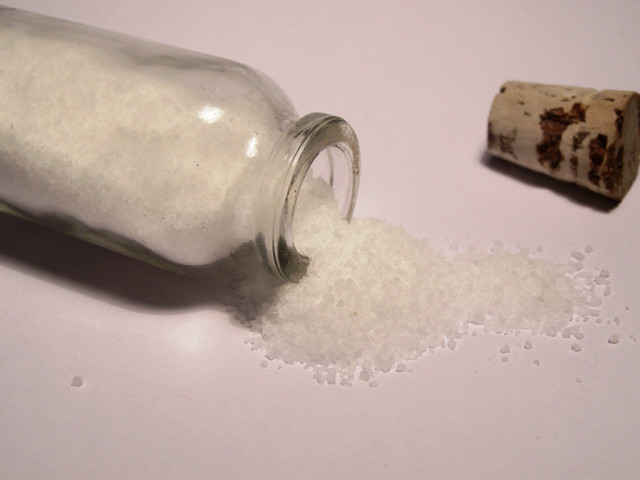Public health: ‘Salt iodisation should be strengthened’
Officials say Sahiwal showed best results under the USI programme.

The National Nutrition Survey 2011 had showed that 79 per cent people in the province were consuming iodised salt, compared to only 17 per cent in 2001. PHOTO: FILE
The results of a health evaluation drive revealed on Saturday that iodine deficiency disorder had been mostly controlled in Sahiwal.
According to the results, Layyah had the worst indicators.
The survey was taken in 16 districts of south Punjab. The evaluation and review drive was headed by Health Services Director Muhammad Jameel Chaudhary.
Executive district health officers and focal persons of the districts attended the session.
Chaudhary said the Universal Salt Iodisation (USI) programme should be strengthened to reduce iodine deficiency disorders. He said the USI programme had shown success in combating iodine deficiency disorders.
“There is a need to strengthen the monitoring framework to improve the quality of salt iodisation and achievement of sustainable results,” he said.
He stressed the Health Department should also expand the scope of the USI programme.
Multan Health Services Director Muhammad Rafi said there was a lot to be done to improve health practices in the region.
He said it was encouraging that several districts in the USI programme had shown positive indicators.
Micronutrient Initiative (MI) Programme Manager Khawaja Masood Ahmad said in the National Nutrition Survey 2011 had showed that 79 per cent people in the province were consuming iodised salt, compared to only 17 per cent in 2001.
USI Programme Manager Munawar Hussain said Pakistan was among the few countries where iodine deficiency disorder was still a public health problem.
He said clinical research had shown that iodine deficiency was the major cause of mental impairment, brain damage and 13-15 per cent low IQ in children.
He said pregnant faced several problems women due to iodine deficiency.
He said making iodised salt available for households was an easy and cost-effective strategy to eliminate iodine deficiency disorder globally.
Ambreen Zahra and Waheed Akhtar from the World Food Programme and the USI field officers from Micronutrient Initiative also attended the meeting.
The participants of the meeting reiterated their commitment to continue district-level monitoring and implementation of strategies so that adequate salt iodisation level were ensured.
The federal government had set a target of 2015 for ending iodine deficiency disorders in Pakistan.
Published in The Express Tribune, October 20th, 2013.


















COMMENTS
Comments are moderated and generally will be posted if they are on-topic and not abusive.
For more information, please see our Comments FAQ